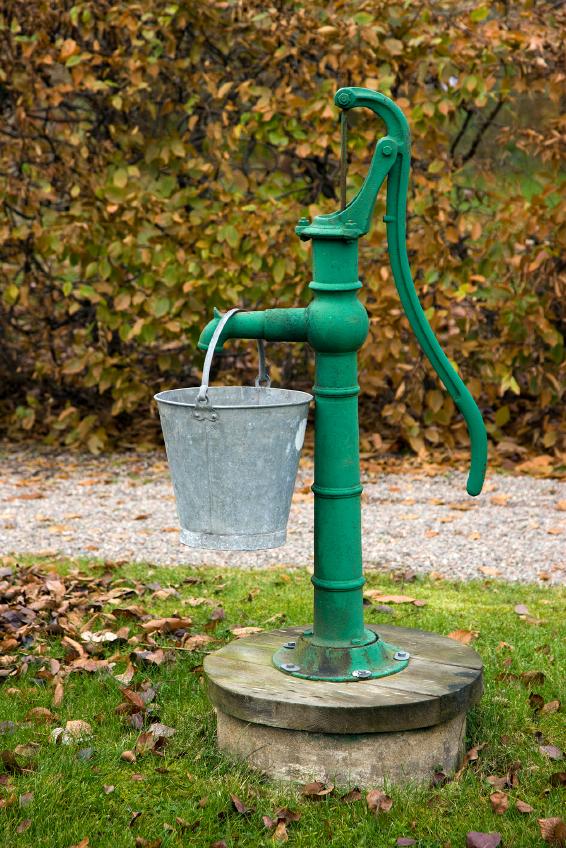 A great majority of Americans live in cities or surrounding metropolitan areas and receive their water through municipal water systems. However, about 15% of American households depend on wells for their water supply. People living in rural areas generally have well water, and in many cases these wells are either inadequate or are contaminated, rendering their water unsafe to drink. There are 3 types of wells: dug, driven, and drilled. Dug wells are the shallowest and have been dug out by hand. Driven wells are generally made where the soil is sand and/or gravel. Drilled wells are the deepest and can extend down hundreds of feet. Because many water wells exist on properties where livestock was kept, or where there are antiquated septic systems, it is easy for wells to contain bacteria and other pathogens. Properties where large amounts of chemical fertilizers and pesticides have previously been used will often contain nitrates and other hazardous substances in the well water.
A great majority of Americans live in cities or surrounding metropolitan areas and receive their water through municipal water systems. However, about 15% of American households depend on wells for their water supply. People living in rural areas generally have well water, and in many cases these wells are either inadequate or are contaminated, rendering their water unsafe to drink. There are 3 types of wells: dug, driven, and drilled. Dug wells are the shallowest and have been dug out by hand. Driven wells are generally made where the soil is sand and/or gravel. Drilled wells are the deepest and can extend down hundreds of feet. Because many water wells exist on properties where livestock was kept, or where there are antiquated septic systems, it is easy for wells to contain bacteria and other pathogens. Properties where large amounts of chemical fertilizers and pesticides have previously been used will often contain nitrates and other hazardous substances in the well water.
If you live in a rural home with a private well, there are some things that you should check to make sure that your well is not infested with contaminants:
- The septic system should be at least 75 feet from the well to prevent bacteria and household chemicals from leaching into the water.
- Livestock should also be kept 75 feet from the well.
- Lawn and garden chemicals should never be stored near the well.
- In-ground tanks of home heating oil are best located 100 feet away.
Flooding can cause serious well problems as sewage, animal waste, and fertilizers can be washed into the ground surrounding your well. Any well that is covered with flood water, even briefly, should be considered to be contaminated and the water from it unsafe to drink without treatment.
Those who do rely upon well water can take steps to protect themselves and their family from possible harm by using water filters. One of the most efficient ways to provide clean, safe water for your home is by installing a whole house filtration system. In this way, all the water used by your household will be cleansed. Many whole house systems depend upon reverse osmosis, although multiple stage filters are also available.
Whole house filtering systems are expensive, but excellent protection can also be provided by smaller filters that can be used either on the counter or under the sink. These filters are easy to install and have a diverter switch that allows you to use filtered or unfiltered water. Gravity feed countertop water filters also will remove bacteria, viruses, heavy metals, VOCs, and silt from well water. The number of filtering options available means that everyone who depends upon well water can have access to clean, pure, safe drinking water.


Share:
Are Carbon Drinking Water Filters Effective?
Remove Bacteria with a Ultraviolet Water Sterilizers